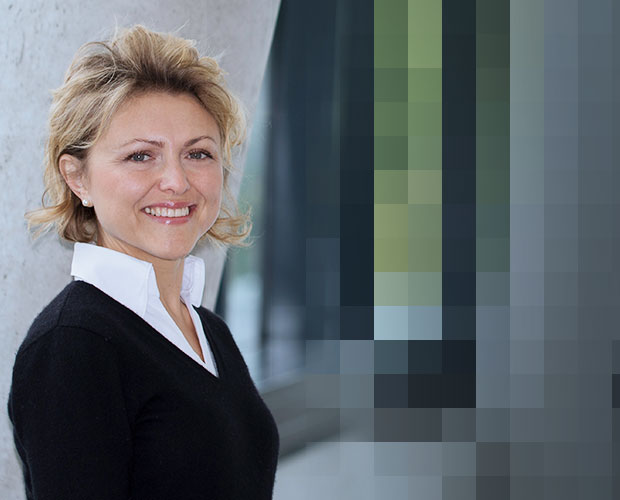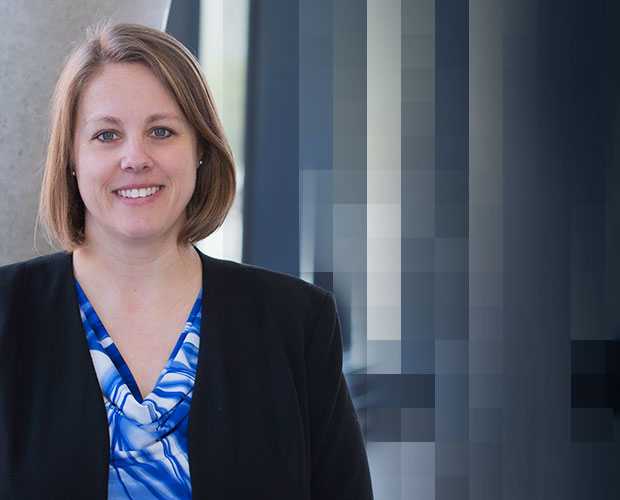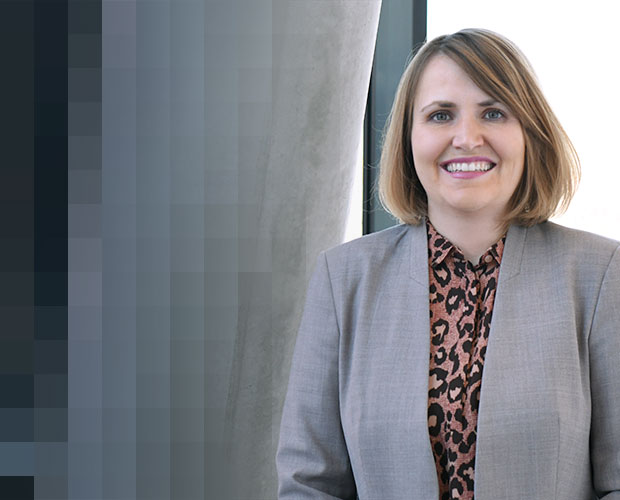Women in science
Dr. Sofia Dembski
Team Leader Biomaterials

"I am leading the biomaterials team. It's exciting to develop materials that help cure different diseases as well as support exploration of different life science processes.
It's never boring, there's always something new to discover and the opportunity to develop every day. How to inspire more women to go into research? Good question. I think just do it. Studying science is very time-consuming, but if you have fun doing it and have a goal in mind, the time goes by very quickly."
Dr. Guinevere Giffin
Group Manager Lithium-Ion Technology

"My work focuses on developing materials and components for solid-state and Li-ion batteries. It's really fascinating to learn how ions move through electrolytes and how this affects battery performance.
My interest in chemistry began in high school – my chemistry teacher sang the periodic table in class – and it has continued to this day. I was fortunate to have many teachers/professors who found ways to spark my interest and push me to excel.
We can spark students' interest in batteries and electrochemistry by giving them opportunities to work on innovative research projects early in their studies. Then it's important to continue to inspire and support those people."
Dr. Claudia Stauch
Expert for particulate systems and inorganic coatings

"My team and me are doing research in the field of functional coatings. We develop particle-based and hybrid anti-X coatings for various materials/products to make them more sustainable.
What I find particularly exciting about it is the interdisciplinarity. We work with a wide variety of materials for a wide variety of applications. For example, we have particle-based anti-dust coatings for photovoltaic systems, but at the same time these can also be used as anti-reflective coatings for windows. Another plus in research is the collaboration with female researchers around the world.
As a chemist, my doctorate was part of my education. During that time, I realized how much I enjoy developing new materials and working in international teams.
I think it is important for women to exchange ideas and support each other more. Mentoring programs can make an important contribution here. The compatibility of family and career is also an important pillar to support women in this decision. Personally, the support from my superiors and also the Fraunhofer-Gesellschaft's Talentaprogram helped me a lot."
Dr. Susanne Wintzheimer
Scientific Head Particle Technology

"My field of research is analogous to a construction set with many building blocks in different colors and shapes. They can be assembled in various ways to create something completely new. In my research, nanoparticles are the building blocks.
They come in a wide variety of materials and with various properties. By combining many of these nanoparticles into a supraparticle, we can not only merge these properties but also create superstructures and characteristics that individual nanoparticles alone cannot provide. Thus, we aim to make many well-known useful properties of nanoparticles accessible for applications while also exploring what novel properties can be obtained to develop new and more environmentally friendly materials, for example, for catalysis, for use in sensors, or as plastic markers to simplify recycling.
Even in school, I enjoyed figuring out the answers to questions myself more than asking someone else. Since my first school experiments in biology, chemistry, and physics, I have been passionate about experimental sciences. As this enthusiasm continued during my studies, it quickly became clear that a career in research was my dream job.
On one hand, it is important to make women in research visible to provide future generations with a broad and diverse range of role models. On the other hand, better compatibility of research work with family life could lead to fewer female graduates opting against a career in research."



